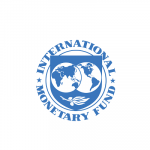Pakistan’s travel and tourism sector is projected to generate over USD 4 billion in revenue in 2025, according to a new report by Statista. The forecast marks a significant milestone for the industry, driven by increasing domestic and international travel, expanding infrastructure, and a growing trend of online bookings.
The report further projects an annual growth rate of 6.75% from 2025 to 2029, which could elevate the market volume to approximately USD 5.53 billion by 2029. This sustained growth highlights tourism’s rising contribution to the national economy.
Read: PIA adds northern routes to boost tourism
The ‘Package Holidays’ segment remains the largest within the market, expected to reach a value of USD 1.92 billion in 2025. By 2029, this segment is forecast to attract over 22 million users, with user penetration increasing from 11.3% in 2025 to 14.6% by 2029. The average revenue per user (ARPU) is expected to be USD 150.66.
The digital transformation of the travel industry is also reshaping consumer behavior. Statista estimates that by 2029, 66% of total travel and tourism revenue in Pakistan will be generated through online sales, reflecting a broader global trend toward digitized travel planning and booking.
A surge in domestic tourism is playing a central role in this growth. Improved transportation infrastructure, rising disposable incomes, and a desire among Pakistanis to explore local destinations have contributed to this increase. Social media and online platforms are also influencing travel decisions more than ever before.
Read: KP to develop new picnic spot at Kundal Dam to boost tourism
Statista attributes the sector’s momentum to multiple macroeconomic factors, including government-backed tourism initiatives, improved security conditions, and enhanced international connectivity through new flight routes. A relatively stable political environment is further strengthening investor and traveler confidence.
Experts view these trends as a strong indication of Pakistan’s potential to become a regional tourism hub, provided current policies and infrastructure development continue on track.








